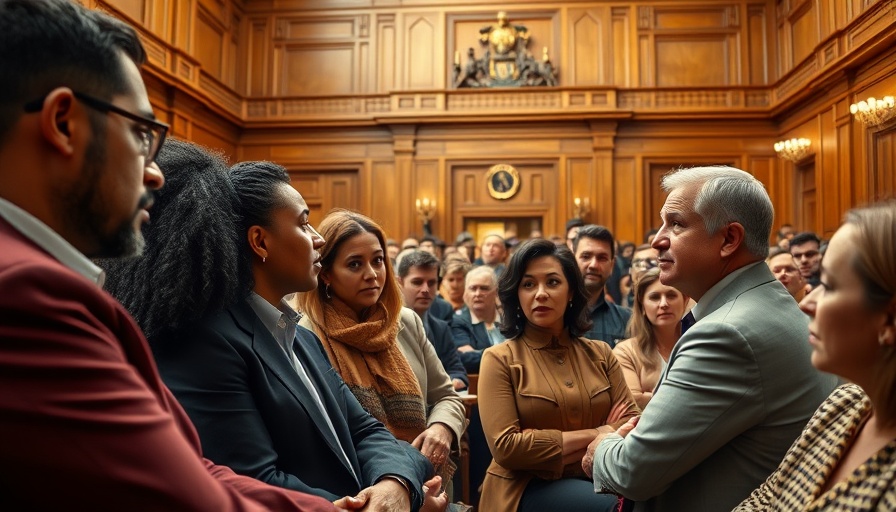
The Recent Redistricting Battle in Texas
In a notable event in Texas politics, the House of Representatives convened a crucial hearing regarding the proposed congressional map that will shape the state's political landscape for the next decade. The only hearing on this vital issue set a significant precedent for citizens to understand the implications of district changes, particularly as they relate to representation and electoral dynamics. With Texas's population growing rapidly, the discourse surrounding redistricting has immense consequences, not only for local communities but for broader electoral trends across the United States.
Understanding the Proposed Congressional Map
The proposed congressional map was presented for the first time during this pivotal hearing, inviting scrutiny from lawmakers and community members alike. This new map is expected to consolidate certain districts while potentially altering partisan balances. The changes will also reflect the shifting demographic landscape, with a growing emphasis on minority representation and urban versus rural interests. Observers note that initial reactions highlight a focus on what these adjustments mean for political representation and public resource allocation, drawing attention from various advocacy groups eager to ensure fair representation.
Why This Matters Now: The Social Context
The timing of this hearing is critical. As we approach the 2024 elections, the outcomes of such redistricting efforts could dictate which party holds majority power in Congress and influence policies affecting healthcare, education, and economic development. In recent years, redistricting has become increasingly contentious in Texas, with allegations of gerrymandering and unfair advantage being a focal point of debate. This national trend reflects broader concerns about the integrity of democratic processes and equity in political representation across the country, making Texas a microcosm of larger national issues.
Potential Implications for Future Elections
Experts are predicting that the decisions made during this hearing could resonate beyond Texas, influencing electoral strategies and party alignments at national levels. The finalization of the congressional map could affect which candidates choose to run, the viability of third-party candidates, and even voter turnout in specific areas. As districts are redrawn, gubernatorial races and local elections may also see shifts in voter demographics, potentially leading to unexpected results in various elections across the state.
Voices from the Community: Diverse Perspectives
Local activists, political leaders, and everyday citizens were present at the hearing, eager to voice their opinions. A diverse range of perspectives emerged, illustrating the passionate discourse that accompanies redistricting. Proponents of the new map argue that it could enhance fair representation for minority populations, while opponents raise concerns over the potential entrenchment of partisan divides. This multifaceted debate emphasizes the significance of community engagement in shaping the political landscape, underscoring the power citizens hold in advocating for their interests.
A Deeper Dive into Redistricting: Tools and Resources
For those looking to understand redistricting further, various online tools and resources are available to track changes and their implications. Websites such as the National Conference of State Legislatures offer insights into state-by-state redistricting processes, while local organizations engage community members through workshops and town hall meetings to discuss upcoming changes. By empowering citizens with knowledge, the conversation surrounding redistricting can evolve from simply reactive to proactively shaping the future political landscape.
This upcoming decade of political representation is not merely about maps; it's about the lives and futures of Texans. As the public continues to engage with these issues, awareness will fuel advocacy and action in legislative processes. Every voter has a role in shaping their communities, and understanding these shifts is paramount.
Engage with Local Politics: Take Action Today
As we move forward, it’s more important than ever for residents to engage with local political forums and express their views. Whether it’s reaching out to elected officials, participating in community discussions, or simply staying informed through local news channels, your voice matters. The landscape of Texas politics is shifting, and active participation will determine the future trajectory of representation within our state.
 Add Element
Add Element  Add Row
Add Row 



Write A Comment